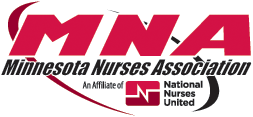
By Mathew Keller RN JD, Regulatory and Policy Nursing Specialist
Last fall, my grandmother was admitted to the hospital after a TIA that left her oriented only x1. Or, more correctly, we thought she was admitted. As it turns out, she was in the hospital for several days in an outpatient status, known in Medicare parlance as “observation status.”
Unfortunately, what “observation status” meant for Grandma was that she did not meet the Medicare requirement for a 3-day inpatient stay at the hospital in order to qualify for discharge to a skilled nursing facility. Thus, despite the fact that Grandma was certainly not in any shape to discharge home; and despite the fact that she had entered the hospital from a nursing home, she was not able to go back to the nursing home.
Such situations occur more frequently than you might think: according to a 2014 report by the Medicare Payment Advisory Commission, 1.8 million observation claims were submitted in 2012, an 88 percent increase from six years earlier. While observation status was originally implemented to allow hospitalists to determine whether or not patients should be admitted, it has grown into a kind of purgatory that allows hospitals to reduce penalties from the Hospital Readmission Reduction Program (since observation status patients are not technically readmitted) and shift services to more profitable outpatient areas of the hospital.
On top of not counting toward the 3-day requirement for discharge to a skilled nursing facility, observation status stays are charged on an outpatient basis (i.e. under Medicare Part B). This can often mean higher out-of-pocket costs for Medicare beneficiaries—for example, Medicare Part B services have a deductible and 80/20 cost sharing (80 percent Medicare/20 percent beneficiary) that is applied to all services provided and does not cover the cost of pharmaceutical drugs used in the hospital.
So what can nurses do? The first step is to advocate for our patients. Ask the hard questions – why are our patients in the hospital being charged for services if the physician is unsure whether or not a hospital admission is medically necessary? Equally important is communicating with the patient. Our patients deserve to know whether or not they are on observation status. Furthermore, they absolutely must understand what “observation status” entails: they will be charged for services under Medicare Part B (80/20 cost sharing and a deductible), the cost of medications will not be covered, and the patient’s time in the hospital will not count toward the 3-day requirement for discharge to a skilled nursing facility.
As of July 1, such communication with a patient is in fact required under state law — but in order to properly communicate with and advocate for our patients under observation status, we must first understand it ourselves. Read more about the issues with observation status here or here.


